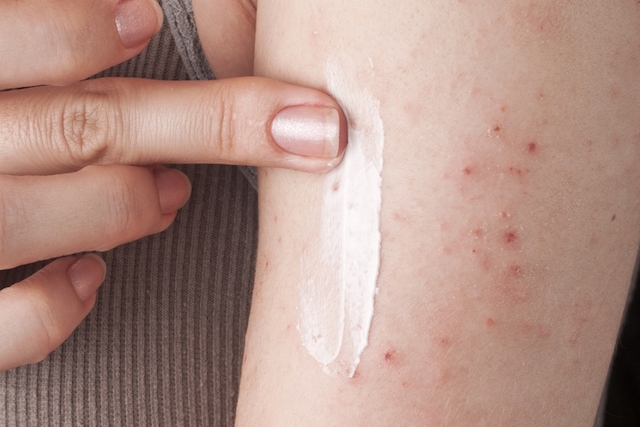- 1. Wash your nose with warm saline
- 2. Inhale steam with eucalyptus
- 3. Humidify the environment
- 4. Drink 2 to 3 liters of water a day
- 5. Consume foods rich in vitamin C
- How to unclog the baby's nose
The stuffy nose, also known as nasal congestion, occurs when the blood vessels in the nose become inflamed or when there is excess mucus production, making breathing difficult.
This problem can be caused by colds, colds, sinusitis or respiratory allergies and usually goes away on its own in about 1 week. Nasal decongestants should only be used under medical guidance and prescription, as they can still worsen nasal congestion, due to the rebound effect.
However, there are some homemade measures that help to unclog the nose, such as:
1. Wash your nose with warm saline

The nasal washer removes excess mucus and secretions from the sinuses, helping to unclog the nose. In addition, as the mixture contains salt, it allows the elimination of bacteria that may be worsening the production of secretions.
As it can cause mild discomfort, the washer is not normally used by children, being more practical for adults. This device must be placed next to one of the nostrils, in order to insert the salted water and let the liquid escape through the other nostril, dragging mucus and impurities present in the nasal passages. Another, more common, nasal lavage is performed using a syringe and 0.9% saline. See in more detail how to do the nasal wash.
This type of nasal washer, like Narin, can be purchased at any pharmacy.
2. Inhale steam with eucalyptus

Inhalation with vapors is a great technique that does not cause any discomfort and, therefore, can be used in children under adult supervision. Steam fluidizes secretions and eucalyptus is a decongestant, helping to unclog the nose.
To make the inhalation just put 3 drops of eucalyptus essential oil in a bowl with about 500 mL of boiling water and inhale the steam for about 5 minutes, placing a bath towel over the head, for the steam to be trapped.
3. Humidify the environment

Humidifying the air helps to make the airway tissues more hydrated and less irritated, relieving discomfort and facilitating the removal of secretions.
To humidify the air, you can use humidifiers, put a wet towel or a bucket of hot water in the room, or turn on the shower in the bathroom and breathe in the steam, for example.
4. Drink 2 to 3 liters of water a day

Water is very important to keep secretions more fluid and easier to eliminate, even if no other techniques are used.
As an alternative to drinking water, you can eat gelatin, soups or drink natural juices, for example. In addition, you can also replace water with teas, especially those with decongestant properties, such as eucalyptus or mint, for example.
5. Consume foods rich in vitamin C

Vitamin C is a substance well known for stimulating the immune system and making it stronger, preventing colds and flu and allowing the body to recover faster.
Some of the foods that can be eaten include pineapple, orange, lemon or tangerine, for example. See a more complete list of foods with vitamin C.
Get to know other home remedies to unclog your nose, in the following video:
How to unclog the baby's nose
The stuffy nose in babies is very common, due to the small diameter of their nostrils, which can cause a lot of discomfort, as they do not know how to get rid of the mucus to be able to breathe better.
To unblock the baby's nose, what you can do is:
- Use saline to wash the baby's nostrils, which can be purchased at pharmacies, applying a few drops or jets to one of the nostrils and sucking with a nasal aspirator; Perform a gentle massage from the top of the nose to the bottom; Place a high pillow under the baby's mattress to facilitate breathing; Aerosol with 5ml of saline solution, for 20 min, 3 to 4 times a day, helping to fluidize the nasal secretion.

Eucalyptus aromatherapy should not be used on children because it can cause a bronchitis crisis. If the environment is very dry, it is recommended to use air humidifiers or to leave a wet towel spread inside the baby's room, avoiding buckets to prevent accidents.
Here's how to prepare home remedies to treat your baby's stuffy nose.















